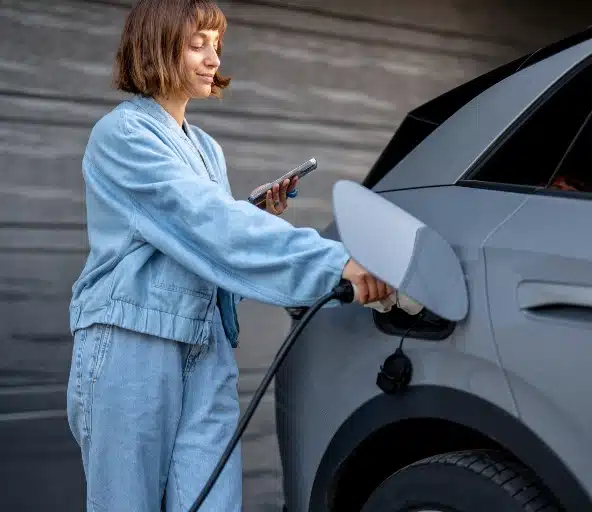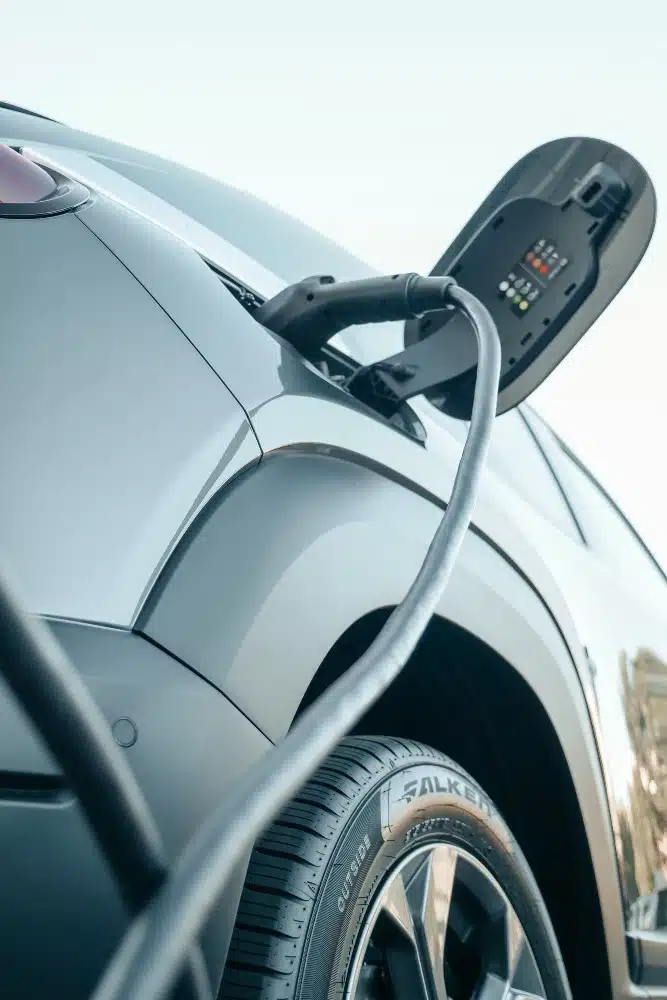Optimize Battery Health
Is Slow Charging Better For Ev Battery Health?
Yes, slow charging is better for EV battery health. Its gradual approach reduces heat generation, maintains consistent charging, and minimizes current stress on the battery. This ultimately extends the lifespan of your electric vehicle's battery.

As the electric vehicle (EV) market continues to grow, so does the discussion around the best charging practices to maximize EV battery life. One common question that EV owners and potential buyers often ask is whether slow charging is better for EV battery health.
At Chicago EV, we specialize in selling, installing, and servicing commercial EV chargers, including Enel X chargers. In this article, we’ll explore the benefits of slow charging for EV batteries and provide valuable insights for our Chicagoland community.
The Basics of EV Charging
Understanding the fundamentals of electric vehicle (EV) charging is essential for every EV owner and enthusiast. There are various levels of EV charging that we should look at. Understanding these charging levels will provide you with valuable insights into the charging options available for your electric vehicle.
- Level 1 (120V): This is the slowest charging option and is typically done using a standard household outlet. It provides the lowest power output and is best suited for overnight charging.
- Level 2 (240V): Level 2 chargers offer faster charging compared to Level 1. They are commonly found in public charging stations and are ideal for daily use or when you need to charge your EV more quickly.
- Level 3 (DC Fast Charging): DC fast chargers provide rapid charging, making them suitable for long-distance travel. These chargers are often located along highways and major routes.

Slow Charging and Battery Health
There are several advantages of slow charging, such as how it minimizes heat generation, ensures battery stability, and contributes to the long-term well-being of your EV’s vital power source.
Reduced Heat Generation
One of the primary advantages of slow charging is that it generates less heat in the battery. Heat can be detrimental to battery health as it can lead to degradation over time. Slow charging produces less heat, which helps extend the lifespan of your EV battery.
More Consistent Charging
Slow charging tends to be more stable and consistent, with a gradual increase in charge. This reduces stress on the battery and can contribute to better long-term performance.
Lower Current Stress
Fast charging, especially DC fast charging, can subject the battery to high current levels, which can wear down the battery’s internal components faster. Slow charging, with its lower current flow, is gentler on the battery.
Enhanced Battery Management
Many EVs have built-in battery management systems that can optimize charging based on various factors, including temperature and charge level. Slow charging allows these systems to work more effectively and protect the battery.
The Importance of Battery Health
Electric vehicles (EVs) have gained widespread popularity for their environmental benefits and cost savings. Central to the performance and longevity of any EV is its battery health.
The battery is not just a critical component; it’s the heart of the electric vehicle, dictating its range, power output, and overall efficiency. Maintaining good battery health is paramount for several reasons:
- Optimal Performance: A healthy battery ensures that your EV operates at its peak performance. It provides the power needed for brisk acceleration, efficient regenerative braking, and consistent energy delivery.
- Extended Range: The range of your EV is directly tied to the health of its battery. A well-maintained battery can take you farther on a single charge, reducing the need for frequent recharging.
- Reduced Operating Costs: Over the long term, preserving battery health can save you money. Replacing a worn-out battery can be a substantial expense, so taking steps to prolong its life is a smart financial move.
- Sustainability: EVs are renowned for their environmental benefits. A healthy battery ensures that your EV remains a clean and green transportation option, contributing to reduced emissions and a greener future.
Understanding Battery Degradation
Battery degradation is a natural and inevitable process that occurs in all rechargeable batteries, including those used in electric vehicles. It refers to the gradual loss of a battery’s capacity and performance over time.
Understanding battery degradation is crucial for EV owners because it allows you to make informed decisions to mitigate its effects. There are several factors contribute to battery degradation in EVs:
- Temperature: Extreme temperatures, both hot and cold, can accelerate battery degradation. High temperatures can cause the battery to overheat and degrade more quickly, while very cold temperatures can reduce its efficiency.
- Charging Frequency: Frequent charging, especially rapid charging, can lead to faster degradation. Each charge-discharge cycle affects the battery’s capacity slightly, so reducing the frequency of deep discharges and fast charging can help.
- Charging Speed: Charging speed is a significant factor in battery health. Fast charging generates more heat and can wear down the battery’s internal components faster than slow charging.
- State of Charge (SOC): Keeping your battery at extremely high or low states of charge for extended periods can contribute to degradation. It’s generally recommended to keep your battery between 20% and 80% SOC for daily use.
- Age and Mileage: As an EV ages and accumulates mileage, its battery naturally degrades. However, proper care and charging practices can slow down this process.
Final Thoughts
Slow charging is indeed better for EV battery health in the long run. While faster charging options like Level 2 chargers and DC fast chargers are convenient for when you’re in a hurry, it’s a good practice to primarily rely on slow charging, especially for overnight or regular charging at home.
At Chicago EV, we understand the importance of preserving the lifespan and performance of your EV battery. That’s why we recommend using slow charging as your primary charging method. Our preferred partnership with Enel X ensures that you have access to high-quality chargers that are well-suited for slow charging, allowing you to make the most of your electric vehicle for years to come.
If you have any questions about EV charging or need assistance with installing or servicing your Enel X charger in the Chicagoland area, don’t hesitate to contact us. We’re here to support your EV journey and help you make the most environmentally friendly and cost-effective choices for your business or personal needs.